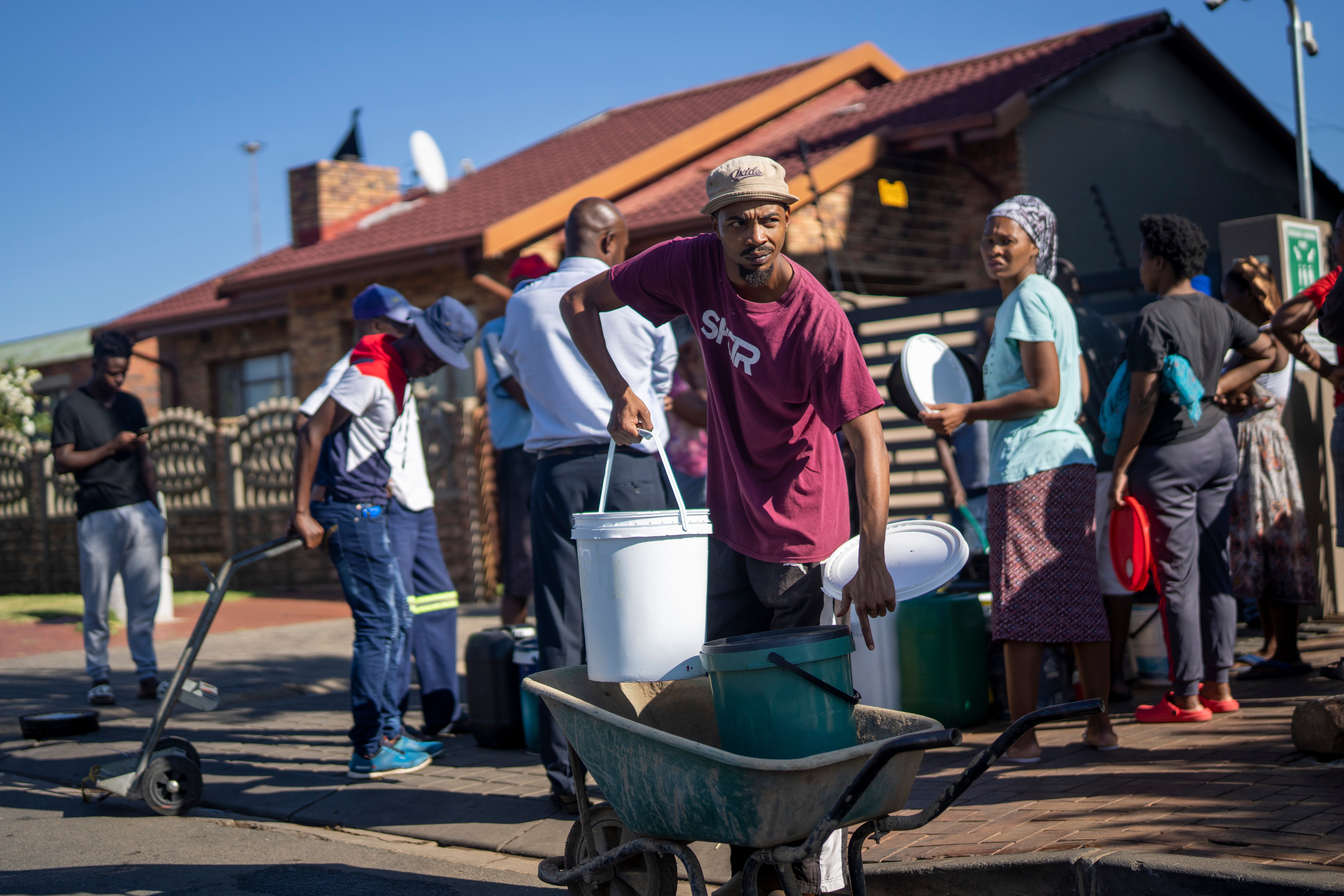South Africa's largest city, Johannesburg, is facing an unprecedented collapse of its water system, affecting millions of people. The public's frustration is a danger sign for the ruling African National Congress, whose comfortable hold on power since the end of apartheid in the 1990s, faces its most serious challenge in an election this year. The country, already famous for its hours-long electricity shortages, is now adopting a term called "water shedding," the practice of going without water, from the term load-shedding, or the practice of going without power.
Residents of Johannesburg and surrounding areas have long been used to seeing water shortages, but only across the whole region at a time. Over the weekend, water management authorities in Gauteng province, which includes Johannesburg and the capital, Pretoria, told officials from both cities that the failure to reduce water consumption could result in a total collapse of the water system. That means reservoirs would drop below 10% capacity and need to be shut down for replenishment.
No drought has been officially declared, but officials are pleading with residents to conserve what water they can find. Outraged activists and residents called this a crisis years in the making and blamed officials’ poor management and the failure to maintain an ageing water infrastructure. Much of it dates back to the years just after the end of apartheid when essential services were expanded to the country's Black population in an era of optimism.
A report published last year by the national department of water and sanitation is damning. Its monitoring of water usage by municipalities found that 40% of Johannesburg's water is wasted through leaks, including burst pipes. In recent days, even residents of Johannesburg's more affluent and swimming pool-dotted suburbs have found themselves relying on the arrival of municipal water tankers, which shocked some.
Rand Water, the government entity that supplies water to more than a dozen municipalities in Gauteng province, pleaded with residents to reduce their consumption. The interlinked reservoirs supplying its system are now at 30% capacity, and high demand on any of them affects them all.
South Africa's largest metropolis suffers from an unparalleled water shortage.
March 22, 2024
0
Johannesburg water crisis
(Copyright 2018 The Associated Press. All rights reserved.)


